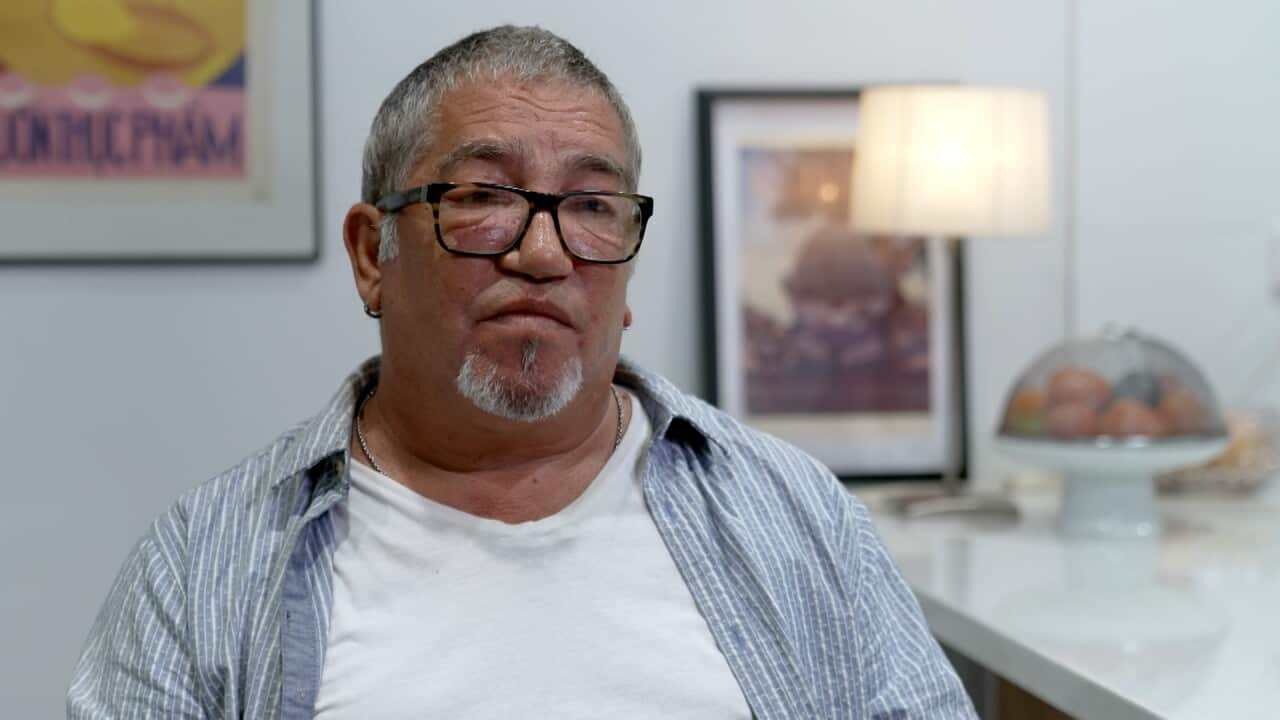At 61, Simon Ross says he’d all but given up on life.
He suffers from cluster headaches – a condition causing bouts of debilitating pain he describes as feeling like “a fork (stabbing you) in the eye, then twisting it.”
The attacks often come on during sleep, waking Simon up to six times a night.
Over time, his headaches went from episodic to chronic. Simon had been an active and social person, but says he became a “reclusive curmudgeon,” unable to work, travel, exercise, see friends, or even drive further than 10 minutes from his home, for fear of having an attack.
At one point, Simon was taking up to 16 pills a day, a litany of medications he says didn’t do anything to ease his symptoms.
He found some relief from oxygen therapy, but this meant having constant access to an oxygen tank he could breathe from as soon as a headache came on. It doesn’t prevent the attacks from starting.

Simon’s bedside table filled with medication to treat his cluster headaches.
“I was totally sceptical,” he told Insight. “Some people advocate the use of hallucinogens for recreational purposes … the last thing I want to do is hallucinate.
“I thought people were just using it [medicinally] as an excuse.”
But with no other treatments working to manage his pain, he decided to take the plunge. Through someone he knew, he bought some magic mushrooms from “an old hippie” who grows and preserves them in organic honey.

A jar of magic mushrooms preserved in honey.
“Immediately, I felt better,” he said.
“For the first time in months, I had a night I could actually sleep through undisturbed.”
Cognitive neuropsychologist Professor Susan Rossell, from Swinburne University of Technology’s Centre for Mental Health in Melbourne, researches psychedelic medicines including psilocybin, the psychedelic compound in magic mushrooms.
While she says there’s compelling evidence for their use in several difficult-to-treat disorders – from mental illness to pain conditions like Simon’s – she believes more research needs to be done before these treatments become legally available.
“What we need to take into account is the regulatory procedures that go for any compound,” she told Insight.
“Unfortunately, we’re a way off.”

Medicine that Simon took to treat his cluster headaches.
But he stresses psychedelic therapy isn’t a miracle cure. While these drugs remain prohibited, he worries patients will turn to the underground to access them on the black market.
“We don’t know what drug they’re actually acquiring. We don’t know the purity of it … there’s no regulation over that,” he said.
In December last year, the Therapeutic Goods Administration (TGA) blocked an application to permit psilocybin and MDMA to be used in medically controlled environments.
The unnamed author of the final decision said the drug posed a "high danger to both acute and long-term effects if abused... the therapeutic value of psilocybin has not been established."
"The risk of developing psychosis when misused may be high... outside of a highly controlled environment, these potential effects do pose a risk to the community, was there to be increased access," the author said.
Magic mushrooms can lead to frightening hallucinations, aggressive or hostile behaviour, and some users experience convulsions or unconsciousness.
MDMA and psilocybin remain Schedule 9 drugs, meaning it is illegal to possess them for recreational use in every state and territory in Australia.

Simon playing the piano in his home.
“I’d much prefer to get it legitimately … I can’t tell how much (psilocybin) I’m taking, or the strength of the product I’m using.
“I don’t really have a choice but to experiment myself, and to do it illegitimately.”
On this week’s episode of Insight, host Kumi Taguchi hears from researchers, advocates and patients who have turned to illegal substances for relief, and asks: are we ready to use psychedelic drugs as medicines? Watch Tuesday at 8.30pm on



